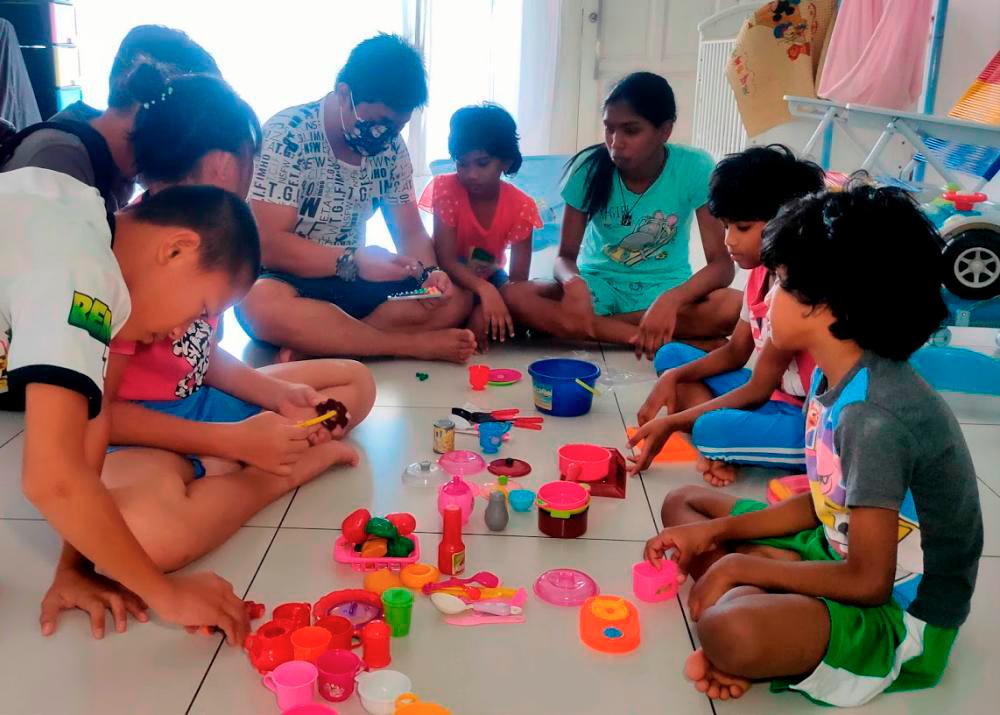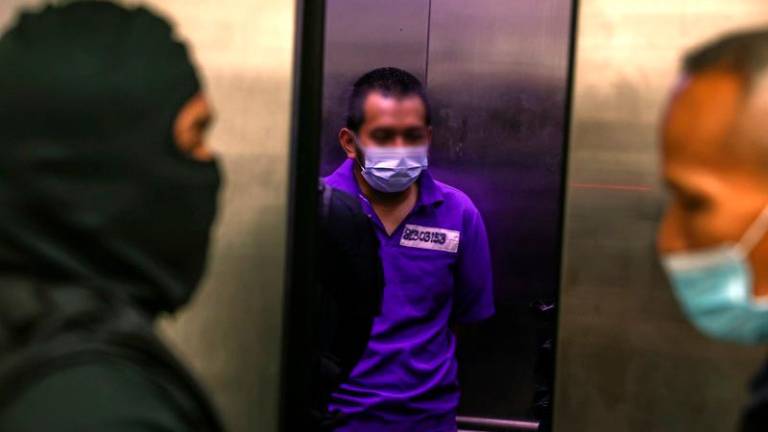THE United Nations Children’s Fund (Unicef) defines an orphan as a child under the age of 18, who has lost one or both parents to any cause of death. Children under institutionalised care are placed in residential settings like orphanages, where there are few caregivers and many residents. On the other hand, non-institutionalised care refers to children who grow up in a normal family-based setting, such as through adoption or kinship.
In Malaysia, a child is placed in orphanages or institutional care under two circumstances:
I. Children who are orphans – those whose parents have both died;
II. Children who are unable to live with or must be separated from their parents or guardians owing to circumstances, such as parental death, abandonment, neglect, abuse and for whom the government provides protection and aid.
Global data indicates that there are around 153 million orphans worldwide. Asia holds the largest number of orphaned children, at 71 million (“The status of orphans in developing countries”, The Borgen Project, Aug 1, 2014).
The latest data collected by Orphan-Care Foundation Malaysia, an NGO established in 2008 under the patronage of Her Royal Highness The Sultanah of Pahang, Sultanah Hajjah Kalsom, estimates that there were around 64,000 children living under institutional care in Malaysia by 2021 (“The Problem of Institutionalisation: Everyday is one too many”, OrphanCare, Sept 29, 2021). However, according to the Social Welfare Department, only 1,510 institutional children are registered under the 15 government-owned institutional care centres across Malaysia (Social Welfare Department, March 2, 2021).
The welfare of institutionalised children in Malaysia are accorded protection under the Care Centre Act 1984, the Child Act 2001, the Registration of Adoptions Act 1952 and the Care Centre Act 1993.
Mandating these laws or regulations to be applied in all institutional care or foster care will provide children with a safe and protective environment, especially in cases of abuse, abandonment, violence and exploitation.
However, concerns with orphan children in Malaysia extend beyond matters of neglect and perceived abuse.
Health of institutionalised children
An institutionalised child’s physical health is impacted by various factors such as their environment, access to healthcare services, and food intake. Neglecting these factors can increase the child’s vulnerability to diseases.
According to a study conducted by Shuhada et. Al (2019), an institutionalised child has a higher risk of poor health, physical underdevelopment, delayed brain growth and emotional attachment issues compared with a normal child (“Developing the comprehensive social well-being index for orphans in Malaysian orphanages,” European Proceedings, 2019).
A study on 15,331 children in Malaysia found that one-fifth (25%) of the children suffered from at least one form of malnutrition, such as over- and undernutrition, contributing to overweight or underweight body mass index, inadequacies in micronutrients, protein intake, among others (“Prevalence of undernutrition and associated factors in young children in Malaysia: A nationwide survey”, Lee, et al., Frontiers in Pediatrics, 2022).
Due to limited access to food and medical treatment, children who live in institutional care may be more at risk of malnutrition and other health-related diseases, such as diarrhoea and eye diseases.
Insufficient social relationship with the community
Social interactions, connections and activities have an impact on how well a child’s psycho-social development progresses. Lack of social relationships or social isolation can increase the risk of mental health issues, such as depression and anxiety.
Research indicates that substantial mental health issues affect over 80% of children and adolescents in orphanages or foster care facilities compared with 20% of adolescents in the general population in Malaysia.
An extremely high frequency of depression (85.2%), anxiety (79.4%), stress (86.1%) and low self-esteem were prevalent in a research conducted among specific institutional care in Malaysia (“Improving emotional health and self-esteem of Malaysian adolescents living in orphanages through Life Skills Education programme: A multicentre randomised control trial”, Mohammadzadeh M, et al., PLoS one, Vol. 15, Issue 12, 2019).
A survey conducted by the Women, Family and Community Development Ministry in 2015 indicates that almost all of the children and adolescents in Malaysian orphanages had low self-esteem and self-confidence (“Developing the comprehensive social well-being index for orphans in Malaysian orphanages,” European Proceedings, 2019).
The absence of interpersonal relationships has a detrimental impact on the structure and development of the brain, putting these children at greater risk of health problems in adulthood.
Access to quality education
As ratified by Malaysia, the Convention on the Rights of the Child, Article 29 highlights the rights of a child to have access to education. A report by Unesco indicates that 8% (58.4 million) of children globally are not receiving formal primary education in schools due to various reasons, conflicts, poverty, child marriage, etc. (“Access to basic education: Almost 60 million children of primary school age are not in school”, The Guardian, Nov 2, 2021).
An article in a news daily shares the stories of two girls in institutional care who could not have access to government aid or education because they were unable to attain their Malaysian Identification Card (MyKad). Even more surprising, these individuals were raised in government-run institutional care (“Orphaned and unfortunate: The systemic rot and the ill-fated victims (Part 3), Sinar Daily, May 30, 2022).
A study by Jariah and Cherish (2015) found that children in institutional care in Malaysia receive insufficient pocket money for school, which causes them to skip extra classes or be absent from school, impacting their academic performance (“Recognising barriers to academic achievement of foster children in Malaysia: A case study”, Jariah and Cherish, Asia Pacific Journal of Contemporary Education and Communication Technology, Vol 1, Issue 1, 2015).
Quality education has the potential to increase the employability rate, improve the health and welfare of these institutionalised children and enables them to partake in state economic growth and development.
Lack of resources, support and training received by caregivers
Caregivers in orphanages face various challenges, such as high caregiver-child ratio, high staff turnover, and caring for children with different physical and emotional needs. In the absence of parents or family, caregivers play a crucial role in the development and growth of children in orphanages.
Often, the lack of resources and support will deteriorate the caregiver’s mental health and eventually lead to the maltreatment of children in institutional care. The World Health Organisation defines child maltreatment as any form of abuse or violence that occurs to children under the age of 18, including physical, mental, sexual, emotional abuse, neglect, commercial exploitation, and other forms of exploitation that can harm a child’s growth and development.
Taking into account the overcrowded institutional/foster care centres and the low number of professional caregivers, (“The critical need of enhancing the quality of services in child care centres, Emir Research, Feb 9, 2023), there is a high possibility of child maltreatment happening in these centres. However, the ministry should provide institutional care management training for caregivers and social services employees, which is an efficient methodology to detect maltreatment in institutional care.
Following are policy recommendations by Emir Research:
1. Earmarking a central and systematic department
Due to the lack of reliable statistics and information regarding the number of institutional care facilities and residents, the available aid and provisions provided by the government, and the nationality of orphans, institutionalised children and adolescents in Malaysia are underserved, undersupported, and marginalised in the community. It is imperative for the ministry to prioritise the registration of all operating institutional care facilities under the Social Welfare Department and ensure that stateless orphans are registered and given MyKad, in accordance with the requirements set forth in the Federal Constitution of Malaysia. This will enable prompt and efficient responses to be provided concerning the welfare and protection of institutionalised children in Malaysia.
2. Revise supplementary food programme
The current extra food plan initiative only caters to primary school children from marginalised and low-income families. The Education Ministry should consider extending this initiative to secondary school students who are eligible.
In addition, instead of only providing one meal per day, it is also recommended that two meals per day are provided for students who have extra classes and extracurricular activities that go on until evening.
A healthy and balanced intake of nutritious food is important in supporting growth and maximising the learning potential of school children. Every meal should fulfil the dietary requirement of the child.
The objective of this initiative is to provide nutritious and balanced meals to students from marginalised communities during school hours, ensuring that they remain physically active and do not miss out on lessons or extracurricular activities due to hunger.
Random inspections should be conducted on school canteens to ensure that the quality and portion of food served comply with the government’s allocation.
3. Conducting transition programmes
Transition programmes are essential for children in institutional care to enhance their self-esteem, identify educational opportunities (such as university, STPM, matriculation, Technical and Vocational Education and Training, etc.) and explore career pathways. Children from institutional care often face uncertainty regarding their career and future path after finishing secondary education, which can lead to involvement in criminal activities such as prostitution, theft, drug distribution and consumption, and other illegal acts as a means of survival.
Engaging vulnerable children through orientation sessions and vocational and technical activities, such as baking, sewing and computer systems, can encourage them to excel academically and discover their passions in fields they enjoy and want to pursue.
In addition, stakeholders can consider providing scholarships, financial aid and other forms of assistance for institutionalised children who excel to further their tertiary education.
In short, based on a study in 2013 by Centre for Mental Health and Well-being former director Marc Archer, an expert in psychology studies, it is found that only 4% of children from institutional care return to their families in Malaysia (“Aina’s story: Why Malaysia needs to rethink how it treats institutionalised children”, Malaysiakini, Dec 17, 2018).
Therefore, Malaysia should start prioritising on enhancing the development and welfare of institutional care in Malaysia.
Jachintha Joyce is a Research Assistant at Emir Research, an independent think tank focused on strategic policy recommendations based on rigorous research. Comments: letters@thesundaily.com














